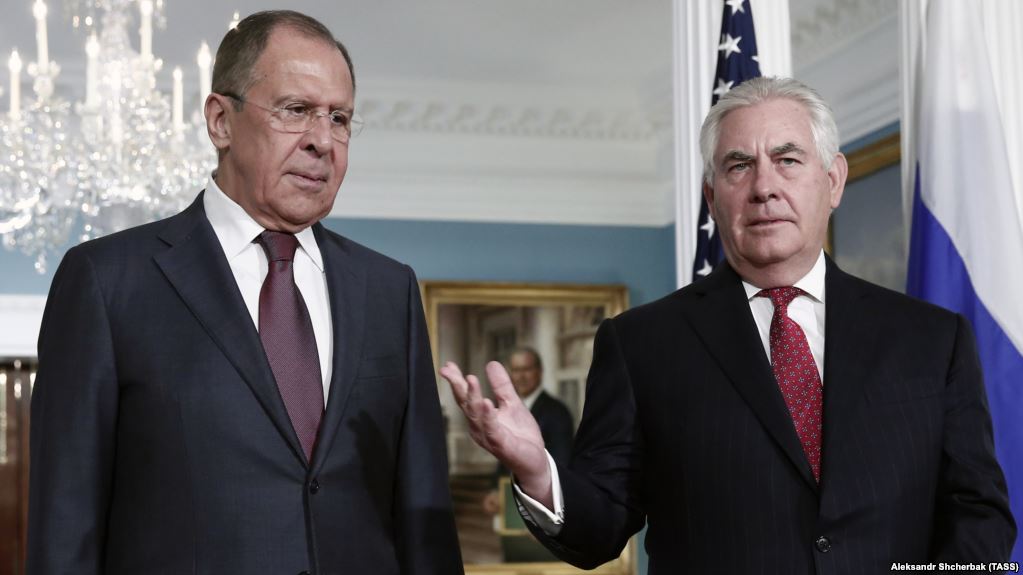Special to WorldTribune.com
Radio Free Europe / Radio Liberty
Russian Foreign Minister Sergei Lavrov said on August 6 that he believed his American counterpart was ready to continue dialogue with Russia on complex issues despite bilateral tensions and the imposition of fresh U.S. sanctions against Moscow.
“We felt the readiness of our U.S. colleagues to continue dialogue. I think there’s no alternative to that,” Lavrov said after what he said was a lengthy meeting with U.S. Secretary of State Rex Tillerson on the sidelines of the Association of Southeast Asian Nations (ASEAN) forum in Manila.

Lavrov told the media that U.S. President Donald Trump’s special representative for Ukraine negotiations, Kurt Volker, will soon make his first trip to Moscow.
Lavrov said Volker, who was named in his position last month, will meet with Vladislav Surkov, the Russian envoy for the Ukraine crisis. Volker made his first trip to eastern Ukraine last month.
Lavrov also said that Tillerson agreed to continue a dialogue between U.S. Undersecretary of State Thomas Shannon and Russian Deputy Foreign Minister Sergey Ryabkov. That channel was created to address hot spots, but Russia suspended it after the U.S. tightened sanctions on Russia.
The U.S. side did not immediately comment on Lavrov’s statements.
Earlier, Lavrov and Tillerson smiled and exchanged pleasantries but made no substantive remarks as journalists were allowed in briefly for the start of their meeting.
Both Tillerson and Lavrov ignored a shouted question about how the new sanctions might affect their discussions.
Trump on August 3 said on Twitter that Washington’s “relationship with Russia is at an all-time & very dangerous low.”
Those comments came a day after Trump signed new sanctions against Moscow, a move Russian Prime Minister Dmitry Medvedev said amounted to a “full-scale trade war” against his country.
Trump and Tillerson opposed the sanctions package that Congress passed to make it harder for Trump to ever ease penalties on Russia.
Although Trump ultimately signed the bill, he called it “seriously flawed.”
